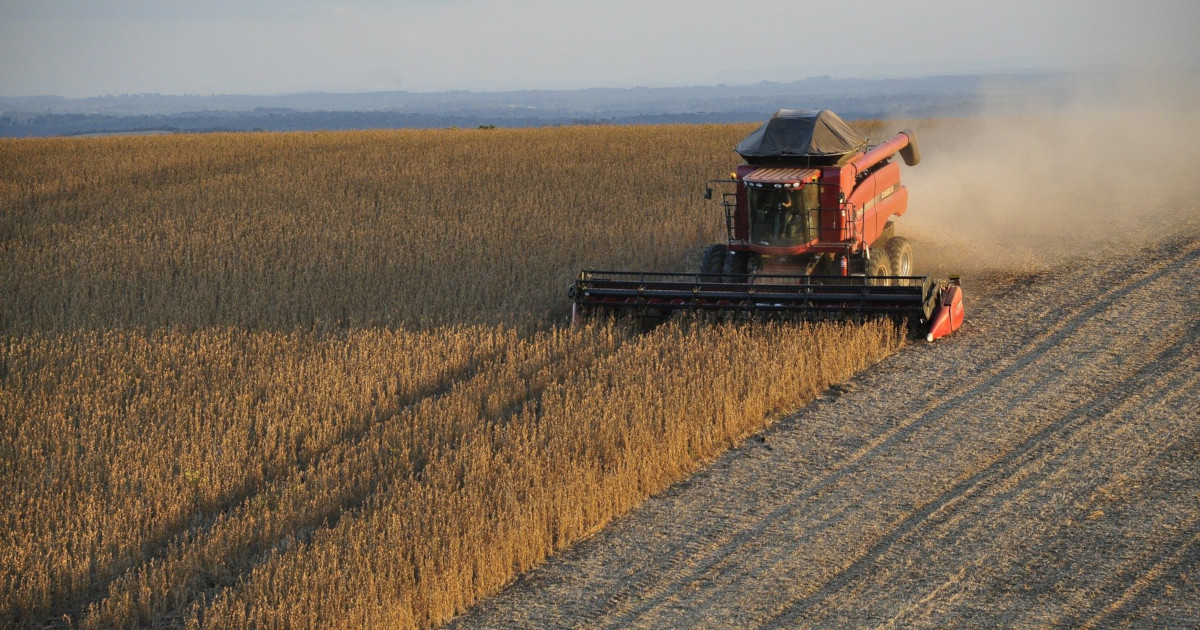
What You Should Know About Plant-Based Meat
March 23, 2021 | Alexis Baden-Mayer
Organic Consumers Association
Emperor Gates has a new decree: “All rich countries should move to 100% synthetic beef.”
Bill Gates has invested in Impossible Foods whose CEO, Pat Brown, says his genetically engineered synthetic meat substitutes will replace the use of animals by 2035.
You’d think the Impossible Foods pitch would be about the horrors of factory farming. Instead, Gates and Brown take aim at regenerative organic agriculture and grass-fed beef. According to Fortune.com:
“Gates and Brown believe that genetically modified seeds and chemical herbicides, in the right doses––and not land-intensive organic farming––are crucial to curbing carbon emissions.”
That old lie about organic farming has been thoroughly debunked, and real climate activists know “It’s not the cow, it’s the how.”
But, our best argument is what everyone instinctively knows, even before they learn the science: Genetically modified and synthetic Frankenfoods like the Impossible Burger aren’t good for us.
Integrative eco-nutritionist Sara Keough, technical advisor for Understanding Ag, has an important new presentation that we encourage everyone to watch: “Plant-Based Meats and the Potential Harm to Human Health.”
She’s also writing a series of articles on artificial animal products.
Part 1 is “The Rise of Plant-Based Meats and the Mission to Eliminate Animal Agriculture.”
Part 2 is “The Hidden Dangers of Processed Plant Proteins.”
Part 3 is “Food Additives and the Controversy over Soy Leghemoglobin.” (Coming soon! Subscribe to Understanding Ag to be alerted when this article comes out.)
Sara also talked plant-based meats with Ashley Armstrong on the Armstrong Sisters’ #MakeSoilSexyAgain program.
And, in case you missed it, watch Political Director Alexis Baden-Mayer’s interview with Sara and her Understanding Ag colleague Ray Archuleta, star of the movie Kiss the Ground.
Genetically modified and synthetic Frankenfoods like the Impossible Burger aren’t good for us.
Unfortunately, as nutritionist Sara Keough points out, when consumers hear “plant-based” they assume that it’s healthy. In her presentation “Plant-Based Meats and the Potential Harm to Human Health” and her article on “Hidden Dangers of Processed Plant Proteins,” she shares what she teaches all of her clients to do: look at the ingredients:
“Upon close inspection, one could probably spot several questionable ingredients on each label. Soy or pea protein might raise a red flag for those concerned with food allergies, digestive issues, or autoimmune diseases. Oxidized plant oils high in inflammatory polyunsaturated fats, such as sunflower oil and canola oil, might also stand out. Additives like methylcellulose, yeast extract, modified food starch, natural flavors, cultured dextrose, and refined coconut oil are commonly found in ultra-processed foods and derived from industrial or laboratory manipulation. Novel ingredients that were never historically consumed by humans, such as genetically engineered soy leghemoglobin, lack adequate safety studies and could also pose potential new health risks for consumers.”
Soy contains anti-nutrients, including:
•phytoestrogens, associated with some cancers and hormonal issues
•goitrogens that can disrupt thyroid function
•lectins, implicated in autoimmune disorders and intestinal permeability
•phytic acid, which impedes mineral absorption
•trypsin inhibitors that can block enzymes in the gut that aid in digestion of proteins
•aquaporins, associated with neuroinflammatory and neurodegenerative diseases
Soy samples evaluated by the USDA Pesticide Data Program revealed 14 total toxin residues, including the herbicide glyphosate which soy is genetically engineered to absorb and is linked to numerous conditions such as cancer, immune dysfunction, and disruption of the human microbiome.
When soy is processed at high heat or with chemicals it can be contaminated with:
•lysinoalanine, which is shown in some rat studies to cause kidney and pancreatic damage
•hexane, a neurotoxin
Pea proteins have similar anti-nutrients, toxins and contaminants, which is probably one reason that, as Keough notes, pediatricians are seeing a rise in pea protein allergies.
Soy is just one of the Impossible Burger’s dangerous ingredients that Keough exposes in her presentation and article on the hidden dangers of processed plant proteins.
In Part 3 of Keough’s series of articles on artificial animal products, “Food Additives and the Controversy over Soy Leghemoglobin,” she’ll take on one of the scariest Impossible Burger ingredients. Look for it on Understanding Ag’s From Our Experts blog.
Once you know the truth, take action.
Tell Congress: Press the U.S. Food & Drug Administration to safety test the GMO Impossible Burger!
